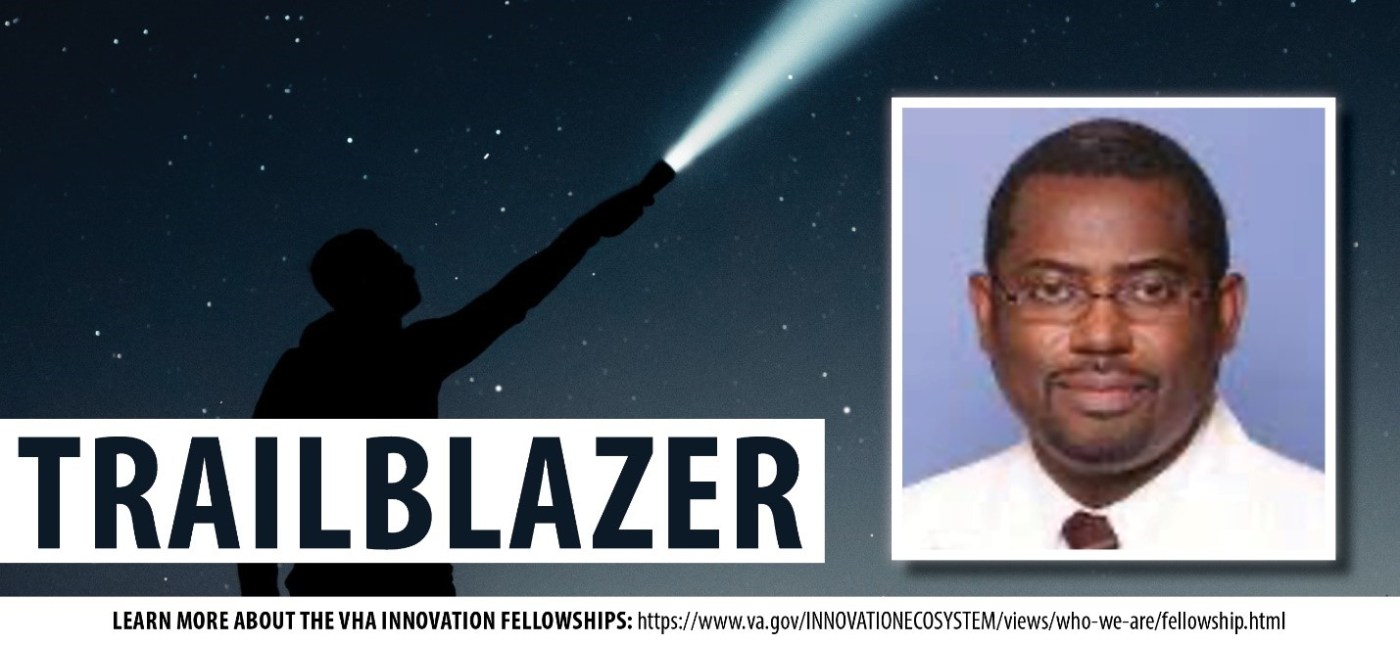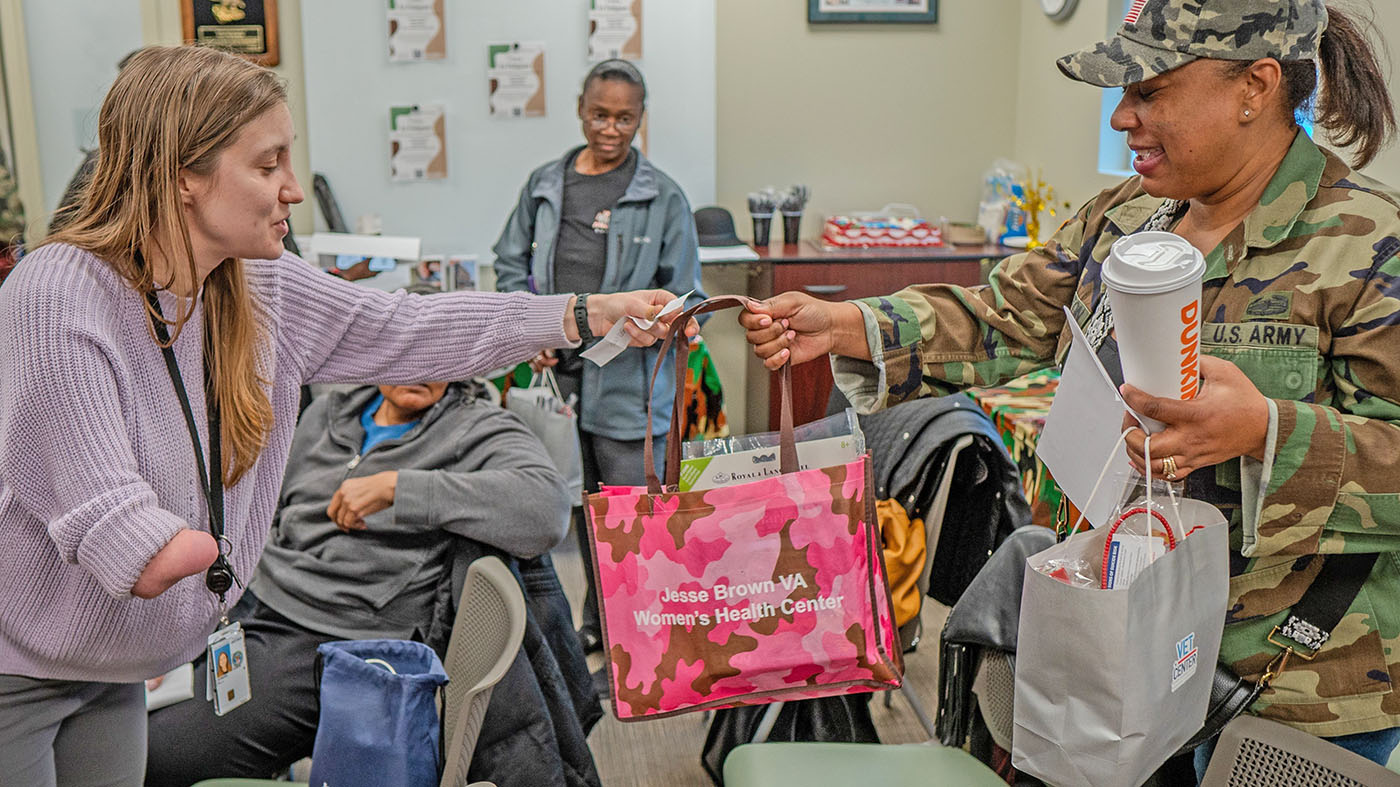Dr. Ajibola Akingba, who goes by “George”, is a surgeon at the Washington D.C. VA Medical Center (VAMC) and, like many VA employees, when it comes to helping Veterans, he is always looking to push past the norm to innovate boundary-breaking solutions.
“I wanted to do more. When you identify problems, you want to solve those problems,” he said when discussing his new Entrepreneur in Residence role with VHA Innovation Ecosystem’s (VHA IE’s) Innovation Fellowship Program (Fellowship Program). “I found out very quickly that VA has multiple avenues to solve problems. When [the VHA IE Fellowships] was brought to my attention, I was blown out of the water.”
Dr. Akingba identified the problem in many of his surgical rooms in which he was conducting procedures. Surgeries often require a medical tool called a guidewire, but the storage, organization and sterilization of these guidewires is often cumbersome, hard to organize, and takes up a large amount of space. In complex surgeries, guidewire exchanges can be done 10–20 times, costing upwards of 30 minutes of surgical time and 5–10 feet of space for the average guidewire table. According to Dr. Ajibola, a surgical room costs around $500 per square foot and $133 a minute, meaning that extra space and time is highly costly.
Dr. Akingba’s solution, which he has now received a patent for, came in the form of utilizing VA’s 3D-printing technology to design a new tool called the Guidewire Retraction Housing Device (RHoD). The RHoD provides efficient guidewire management, retraction and housing while taking up far less space and making guidewire switching an easier and more manageable procedure. The reduced time in surgery not only leads to cost savings but a reduction of radiation exposure for patients and staff, and increased safety for patients.
“It became very evident to us that this is something we need to do,” said Dr. Akingba.
As a VHA IE Entrepreneur in Residence, Dr. Akingba is receiving support, time and guidance in taking his emerging project and expanding it to be tested for real-world impact. The Fellowship Program builds workforce capacity through the development of emerging and senior leaders to become innovation agents capable of championing solutions that will improve health care for Veterans.
“It has been otherworldly great,” he said. “When you start on these projects, you have a plan, and that’s just what it is: a plan. You start to execute it but what tends to happen is additional problems occur. What has been different about this experience is that I haven’t had to solve all these problems myself.”
Through access to VHA IE’s extensive network and infrastructure – both within and outside of VA – Dr. Akingba can can collaborate with thought leaders across the country in further developing his innovation, turning a problem he faced at the D.C. VAMC into a solution for surgical rooms across the country.
Allison Amrhein is the director of operations for the VHA Innovators Network and communications lead for the VHA Innovation Ecosystem.
Topics in this story
More Stories
VA Research Advisory Committee on Gulf War Veterans’ Illnesses hosting Veteran Engagement Sessions in Phoenix for 1990-91 Gulf War Veterans.
Navy Veteran and president of the American Medical Association got a colonoscopy and encourages other Veterans to do the same.
Chicago Vet Center and VA gave women Veterans information on VA services available to them.







california is determined to kill me and my medical records prove this many times over. You will wait until nothing can be done before you put on a good act for the audience. this country hates it’s veterans more than any other country in the world that’s what my medical records PROVE!!